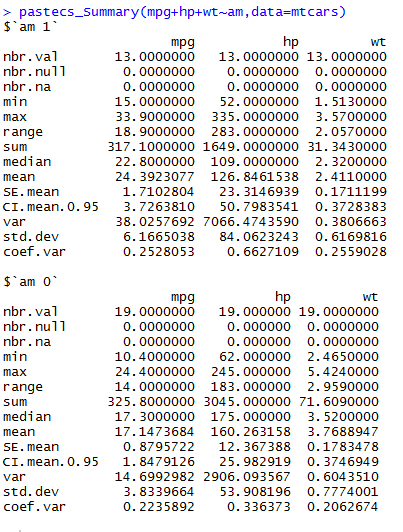- php加密的是什么,看看下面这个php代码是使用什么加密的?
xiao龟
php加密的是什么
加密的代码如下:!/usr/bin/php-qeNrtWWlTG1cW/SvY5Yqg4krevoSQuIUEiE0LYAwuijKbEGA2YbMk+TUOjEnyc976b+Y2pKZqpNcgz3gm46r5BpL69Ln3nnvved3PrrFyRhOJEAoySvT66ceoMFbS02BNEFE8XRsLRAmkHI7eKMxMHC7tnKOz+Ytuezt7SUrPS6TcOa0c6
- php rad加密公钥过长,看看下面这个php代码是使用什么加密的?
范特嘻嘻
phprad加密公钥过长
加密的代码如下:!/usr/bin/php-qeNrtWWlTG1cW/SvY5Yqg4krevoSQuIUEiE0LYAwuijKbEGA2YbMk+TUOjEnyc976b+Y2pKZqpNcgz3gm46r5BpL69Ln3nnvved3PrrFyRhOJEAoySvT66ceoMFbS02BNEFE8XRsLRAmkHI7eKMxMHC7tnKOz+Ytuezt7SUrPS6TcOa0c6
- TCP和UDP协议区别+应用场景+优缺点+常用协议
马拉萨的春天
一天一读基础知识点tcp/ipudp网络
文章目录1.TCP协议特点应用场景优点缺点运行于TCP协议之上的协议2.UDP协议特点应用场景优点缺点运行于UDP协议之上的协议TCP(TransmissionControlProtocol)和UDP(UserDatagramProtocol)是两种常用的传输层协议,它们在网络通信中扮演不同的角色,各有优缺点。1.TCP协议特点提供面向连接的、可靠的数据传输服务。使用三次握手建立连接,四次挥手断开
- 使用内联汇编实现CAS操作(含详细讲解)
(Charon)
汇编
在多线程环境下,如何安全地更新共享变量,一直是一个重要的话题。今天,我们通过一段使用内联汇编实现的CAS(CompareAndSwap)代码,深入学习它的原理和用法。完整示例代码如下:#include//标准输入输出头文件#include//pthread多线程编程相关头文件#include//usleep函数需要的头文件#defineTHREAD_COUNT10//定义线程数量为10volati
- C语言手写简易 DNS 客户端(接收部分)
(Charon)
c语言开发语言
本文通过纯C语言手动构造DNS请求报文,使用UDP协议发送到公共DNS服务器,并接收响应,完整演示DNS请求流程。主流程:dns_client_commit()这是整个流程的核心函数,下面我们按顺序拆解每一步的逻辑,尤其突出发送sendto与接收recvfrom的设计思路和实现。第一步:创建UDP套接字intsockfd=socket(AF_INET,SOCK_DGRAM,0);if(sockfd
- 服务器或网络卡的原因和状况
qq2453939845
服务器网络网络服务器
卡的情况下,请先检查您服务器的使用情况。1、CPU使用率是否大于50%。2、内存使用率是否过高。3、网络使用率是否过高。如您购买的是10mbps,那么您服务器的网卡如果为100mbps的连接速率,当网络使用率为10%左右的情况下,则表示您的服务器带宽跑满了,以此类推,如果是千兆网卡(连接速率1000mbps)的,则显示1%即为10mbps。如果出现上述情况,则表明您的服务器或网络无法承载您目前的服
- 解决Linux绑定失败地址已使用(端口被占用)的问题
誰能久伴不乏
linux服务器网络
文章目录解决`bindfailed:Addressalreadyinuse`问题一、问题原因1.**端口已经被其他程序占用**2.**端口处于`TIME_WAIT`状态**3.**未正确关闭套接字**二、如何排查和解决问题1.**确认端口是否被占用**2.**查找并杀掉占用端口的进程**3.**等待端口释放(`TIME_WAIT`状态)**4.**强制重用端口**(仅限开发环境)5.**使用其他端
- 基于STM32金属探测器设计
摘要随着便携式金属探测器在安防,考古及工业检测等领域需求的增加,现有探测器的体积大,能耗高,操作复杂的缺点亟需解决。本文针对便携式金属探测器的设计进行探索,在硬件上使用了STM32F103C8T6单片机模块,WL02涡流传感器模块,ADS1115模数转换模块,蜂鸣器模块等设计出本系统的电路,在软件上设计出主程序,信号采集及报警子程序等,对系统进行基础功能,灵敏度,抗干扰和耐久性测试,测试结果表明探
- K8s 1.24在node节点上手动部署etcd
喝醉酒的小白
K8skubernetesetcd容器
目录标题第一次操作一、生成证书并拷贝到新增节点~~~~方案1~~缺少了SAN(SubjectAlternativeNames)~~方案2关键改进:使用说明:二、在已有节点(181)上添加etcd集群成员三、在180上部署静态Pod四、更新旧节点(181)的静态Pod配置-可选五、验证集群状态第一次操作下面给出在节点 172.30.30.180(下简称“180”)上新增etcd成员的完整操作步骤。假
- UDP并发服务器之多进程并发
一、常见的服务器类型在网络程序里面,通常都是一个服务器处理多个客户端。为了处理多个客户端的请求,服务器端程序有不同的处理方式。1.迭代服务器大多数UDP都是迭代运行,服务器等待客户端的数据,收到数据后处理该数据,送回其应答,在等待下一个客户端请求。2.并发服务器并发服务器是指在同一个时刻可以响应多个客户端的请求本质是创建多进程/多线程,对多数用户的信息进行处理UDP协议一般默认是不支持多线程并发的
- Java中hashmap的原理
好好沉淀
笔记学习java经验分享
是什么hashmap底层是由哈希表组成,用于存储键值对的,其核心就是将哈希值映射到数组索引位置上,通过数组+链条的方式来解决哈希冲突,java8之后优化成数组+链条+红黑树。存放hashmap的哈希值由hashcode方法来进行计算,确定存储在数组上的位置,哈希值进过计算之后可能会重复,此时直接加在链表上即可,防止冲突分布不均。扩容hashmap的数组默认长度是16,负载因子是0.75,当大于16
- 如何在Windows系统下使用Dockerfile构建Docker镜像:完整指南
996蹲坑
windowsdocker容器
前言Docker作为当前最流行的容器化技术,已经成为开发、测试和运维的必备工具。本文将详细介绍在Windows系统下使用Dockerfile构建Docker镜像的完整流程,包括两种镜像构建方式的对比、Dockerfile核心指令详解、实战案例演示以及Windows系统下的特殊注意事项。一、Docker镜像构建的两种方式1.容器转为镜像(不推荐)这种方式适合临时保存容器状态,但不适合生产环境使用:#
- UDP服务器的优缺点都包含哪些?
wanhengidc
udp服务器网络协议
UDP协议不需要像TCP协议那样进行复杂的连接建立与拆除过程,在进行传输数据信息的过程中,应用层将数据交给UDP层,UDP层直接加上首部就发往网络层,极大地减少了处理时间和资源消耗。例如在一些简单的网络监控程序中,只是定期发送一些状态信息,对数据准确性的要求不高时,企业可以选择使用UDP服务器,能够实现快速传输数据的功能。由于UDP服务器不需要连接建立过程和重传机制的束缚,UDP数据能够快速地从发
- 【C语言网络编程】HTTP 客户端请求(域名解析过程)
在做C语言网络编程或模拟HTTP客户端时,第一步就离不开“把域名解析为IP地址”这一步。很多人可能直接复制粘贴一段gethostbyname的代码,但未必真正理解它的原理。本篇博客将围绕一个经典函数:char*host_to_ip(constchar*hostname)深入剖析DNS解析过程、IP地址转换机制,并进一步带你了解HTTP请求是如何基于TCP通信进行的。一、核心函数:host_to_i
- 家庭网络中的服务器怎么对外提供服务?
行而不知
服务器运维内网穿透DDNS
家庭网络中的服务器怎么对外提供服务?方案1DDNS(家庭网络需要有公网ip)方案2内网穿透(需要有一台公网ip的服务器)方案1DDNS(家庭网络需要有公网ip) 怎么判断是否有公网ip?大致的流程就是光猫改桥接,由光猫拨号改为路由器拨号,在路由器管理页面查看拨号获取的ip,用这个ip去ip查询网站验证,具体的操作可自行搜索,这里不进行赘述了。 我们都知道,ip有两种,ipv4和ipv6 网络
- 如何查看自己本地的公网IP地址?内网环境网络如何开通服务器公网ip提供互联网访问?
搬码临时工
网络tcp/ip服务器
查看公网IP和开启公网地址提供互联网服务是作为网络管理员的必修课。代替路由映射的端口映射应用使用最广泛的就是nat123。内网发布网站或其他应用到外网访问,且本地无公网IP,或80和443端口被屏蔽,对于这些环境,就需要利用端口映射应用网络辅助来实现。一、如何查看自己本地的公网IP?登录你的路由器,看拨号状态那的WAN口的IP地址;如果你是光纤猫拨号,就需要登录光纤猫,看拨号状态那WAN口的IP地
- windows exe爬虫:exe抓包
程序猿阿三
爬虫项目实战exe抓包
不论任何爬虫,抓包是获取数据最直接和最方便的方式,这章节我们一起看一下windowsexe是如何拦截数据的。用mitmproxy/Charles/Fiddler或Wireshark拦截它的HTTP/HTTPS/TCP流量。如果是HTTPS,安装并信任代理的根证书。由于exe大部分可能走的是自定义应用层协议。在不知情所拦截应用使用的流量时,所以建议用Wireshark。本文利用python代码,实现
- Docker初识:mysql8主从复制(单向)- 主从搭建扩展知识
滴水可藏海
#mysql数据库
主从服务(master-slave)新学习到的知识。1、全库同步与部分同步上回书说到Docker初识:mysql8主从复制(单向)的配置都是针对全库配置的。但是实际上并不需要针对全库做备份,只需要对一些特别重要的库或者表来进行同步。例如information_schema等。可以通过配置文件中的一些属性指定需要针对哪些库或者哪些表记录binlog。Master配置:#需要同步的二进制数据库名bin
- Android 图像处理 - Bitmap 图像处理观察记录(基本图像复制、带目录创建的图像复制、字节流处理的图像复制、并发图像复制、单线程池顺序图像复制)
Bitmap图像处理观察记录1、基本图像复制从应用内部存储目录读取test.png使用BitmapFactory解码为Bitmap对象将Bitmap重新压缩保存为newTest.png操作成功,compress返回trueFilefile=newFile(getFilesDir(),"test.png");StringabsolutePath=file.getAbsolutePath();Bitm
- 《手机摄影从实战到精通》——多个技能多条路,手机拍摄技巧,着实过分实用了
Ann2015
智能手机程序人生学习生活风景
用小小的一部手机,就能拍大片?是的,手机摄影已不容小觑。近年来,一些手机厂商邀请知名导演使用手机拍大片,以彰显手机性能的强大,这也重新定义了我们对手机摄影的认知。相较于传统摄影设备,智能手机自带的“计算摄影”性能也降低了拍摄门槛,它可以将原本需要手动调节的各项参数指标进行自动调整和优化,使我们能轻松获得最佳拍摄效果。这也大大降低了拍摄的难度和门槛,让我们将重点放在内容创作上。手机与视频平台也密不可
- Spring 如何干预 Bean 的生命周期?
冰糖心书房
SpringIOCIocspringBean生命周期
Spring提供了多种机制让我们能够在Bean生命周期的不同节点“插入”自己的逻辑,这些机制可以分为两大类:针对单个Bean的干预和针对所有/多个Bean的全局干预。一、针对单个Bean的干预(最常用)这些方法让你为一个特定的Bean类定义其初始化和销毁逻辑。1.使用JSR-250注解(推荐方式)这是现在最优雅、也是Spring官方推荐的方式。它使用Java的标准注解,与Spring框架解耦。@P
- Mysql字段没有索引,通过where x = 3 for update是使用什么级别的锁
没有索引时,FORUPDATE会锁住整个表现在,你正在一本一本地翻看所有书,寻找“维修中”的书,并且你对管理员说:“在我清点和修改完之前,别人不能动这些书,也不能往这个范围里加新书!”问题1:如何锁住你找到的“维修中”的书?你每找到一本“维修中”的书,就给它贴上一个“正在处理,请勿触碰”的标签(行级排他锁)。问题2:如何防止别人“往这个范围里加新书”?这是最关键的。因为你没有“状态”的目录卡片(没
- Mamba项目用户指南:高效管理Python环境的利器
左松钦Travis
Mamba项目用户指南:高效管理Python环境的利器mambaTheFastCross-PlatformPackageManager项目地址:https://gitcode.com/gh_mirrors/mam/mamba什么是Mamba?Mamba是一个基于Conda的CLI工具,专为高效管理Python环境而设计。它继承了Conda的所有优点,同时在性能上进行了显著优化,特别是在解决依赖关系
- 【亲测免费】 Mamba:快速跨平台的包管理器
林梦雅
Mamba:快速跨平台的包管理器项目基础介绍和主要编程语言Mamba是一个用C++重新实现的Conda包管理器。它旨在提供比传统Conda更快的包管理和依赖解析速度。Mamba的核心部分使用C++编写,以确保高效性和性能。同时,Mamba也使用了Python和其他一些辅助语言来实现其功能。项目核心功能Mamba的核心功能包括:快速依赖解析:利用libsolv库进行高效的依赖解析,这是RedHat、
- 【Modern C++ Part8】Prefer-nullptr-to-0-and-NULL
莫彩
C++ModernC++c++开发语言jvm
优先使用nullptr而不是0或者NULL0字面上是一个int类型,而不是指针,这是显而易见的。C++扫描到一个0,但是发现在上下文中仅有一个指针用到了它,编译器将勉强将0解释为空指针,但是这仅仅是一个应变之策。C++最初始的原则是0是int而非指针。经验上讲,同样的情况对NULL也是存在的。对NULL而言,仍有一些细节上的不确定性,因为赋予NULL一个除了int(即long)以外的整数类型是被允
- 【Modern C++ Part7】_创建对象时使用()和{}的区别
莫彩
ModernC++C++c++开发语言
在C++11中,你可以有多种语法选择用以对象的初始化,这样的语法显得混乱不堪并让人无所适从,(),=,{}均可以用来进行初始化:intx(0);//使用()进行初始化inty=0;//使用=进行初始化intz{0};//使用{}进行初始化在很多情况下,可以同时使用=和{}intz={0};//使用{}和=进行初始化对于这一条,我通常的会忽略“等于-{}”这种语法,因为C通常认为它只有{}。认为这种
- GPT实操——利用GPT创建一个应用
狗木马
深度学习gpt-3gpt
功能描述信息查询:用户可以询问各种问题,如天气、新闻、股票等,机器人会返回相关信息。任务执行:用户可以要求机器人执行一些简单的任务,如设置提醒、发送邮件等。情感支持:机器人可以与用户进行情感交流,提供安慰和支持。个性化设置:用户可以自定义机器人的回复风格和偏好。技术栈前端:React.js后端:Node.js+Express数据库:MongoDB自然语言处理:OpenAIGPT-3API其他工具:
- Android开发中RxJava的使用与原理
你过来啊你
androidrxjava
RxJava是ReactiveExtensions在JVM上的实现,专为处理异步事件流和基于观察者模式的编程而设计。在Android开发中,它极大地简化了异步操作(如网络请求、数据库访问、UI事件处理)的管理、组合和线程调度,有效解决了回调地狱问题。一、RxJava核心概念Observable(可观察者):数据源或事件源。它负责发出数据项(onNext)或事件(成功完成onComplete/发生错
- iOS应用性能优化指南
在移动应用开发领域,iOS应用性能优化一直是开发者关注的焦点。优化应用性能不仅能够提升用户体验,还能增强应用的竞争力。本文将从多个方面详细阐述iOS应用性能优化指南,帮助开发者打造更高效、更流畅的应用。优化内存管理内存泄漏的预防与检测内存泄漏是导致应用性能下降的常见问题。开发者应遵循ARC(自动引用计数)原则,合理管理对象的引用关系。同时,可以使用Xcode的Instruments工具检测内存泄漏
- MySQL数据库访问(C/C++)
敲上瘾
MySQL数据库mysql数据库c++c语言数据库开发数据库架构
访问数据库的方式:命令行:使用命令行输入SQL指令直接访问。需记忆命令和SQL语法,对新手不友好。正因如此推荐新手使用该方式访问,能倒逼学习者对SQL语法的记忆,并对MySQL更深入理解。图形化界面访问:使用图形化界面工具,如:DBeaver、DataGrip、Navicat、HeidiSQL(MySQL)、MySQLWorkbench。特点:有语法提示,可以直接对数据手动增删改。编程接口:在编写
- 枚举的构造函数中抛出异常会怎样
bylijinnan
javaenum单例
首先从使用enum实现单例说起。
为什么要用enum来实现单例?
这篇文章(
http://javarevisited.blogspot.sg/2012/07/why-enum-singleton-are-better-in-java.html)阐述了三个理由:
1.enum单例简单、容易,只需几行代码:
public enum Singleton {
INSTANCE;
- CMake 教程
aigo
C++
转自:http://xiang.lf.blog.163.com/blog/static/127733322201481114456136/
CMake是一个跨平台的程序构建工具,比如起自己编写Makefile方便很多。
介绍:http://baike.baidu.com/view/1126160.htm
本文件不介绍CMake的基本语法,下面是篇不错的入门教程:
http:
- cvc-complex-type.2.3: Element 'beans' cannot have character
Cb123456
springWebgis
cvc-complex-type.2.3: Element 'beans' cannot have character
Line 33 in XML document from ServletContext resource [/WEB-INF/backend-servlet.xml] is i
- jquery实例:随页面滚动条滚动而自动加载内容
120153216
jquery
<script language="javascript">
$(function (){
var i = 4;$(window).bind("scroll", function (event){
//滚动条到网页头部的 高度,兼容ie,ff,chrome
var top = document.documentElement.s
- 将数据库中的数据转换成dbs文件
何必如此
sqldbs
旗正规则引擎通过数据库配置器(DataBuilder)来管理数据库,无论是Oracle,还是其他主流的数据都支持,操作方式是一样的。旗正规则引擎的数据库配置器是用于编辑数据库结构信息以及管理数据库表数据,并且可以执行SQL 语句,主要功能如下。
1)数据库生成表结构信息:
主要生成数据库配置文件(.conf文
- 在IBATIS中配置SQL语句的IN方式
357029540
ibatis
在使用IBATIS进行SQL语句配置查询时,我们一定会遇到通过IN查询的地方,在使用IN查询时我们可以有两种方式进行配置参数:String和List。具体使用方式如下:
1.String:定义一个String的参数userIds,把这个参数传入IBATIS的sql配置文件,sql语句就可以这样写:
<select id="getForms" param
- Spring3 MVC 笔记(一)
7454103
springmvcbeanRESTJSF
自从 MVC 这个概念提出来之后 struts1.X struts2.X jsf 。。。。。
这个view 层的技术一个接一个! 都用过!不敢说哪个绝对的强悍!
要看业务,和整体的设计!
最近公司要求开发个新系统!
- Timer与Spring Quartz 定时执行程序
darkranger
springbean工作quartz
有时候需要定时触发某一项任务。其实在jdk1.3,java sdk就通过java.util.Timer提供相应的功能。一个简单的例子说明如何使用,很简单: 1、第一步,我们需要建立一项任务,我们的任务需要继承java.util.TimerTask package com.test; import java.text.SimpleDateFormat; import java.util.Date;
- 大端小端转换,le32_to_cpu 和cpu_to_le32
aijuans
C语言相关
大端小端转换,le32_to_cpu 和cpu_to_le32 字节序
http://oss.org.cn/kernel-book/ldd3/ch11s04.html
小心不要假设字节序. PC 存储多字节值是低字节为先(小端为先, 因此是小端), 一些高级的平台以另一种方式(大端)
- Nginx负载均衡配置实例详解
avords
[导读] 负载均衡是我们大流量网站要做的一个东西,下面我来给大家介绍在Nginx服务器上进行负载均衡配置方法,希望对有需要的同学有所帮助哦。负载均衡先来简单了解一下什么是负载均衡,单从字面上的意思来理解就可以解 负载均衡是我们大流量网站要做的一个东西,下面我来给大家介绍在Nginx服务器上进行负载均衡配置方法,希望对有需要的同学有所帮助哦。
负载均衡
先来简单了解一下什么是负载均衡
- 乱说的
houxinyou
框架敏捷开发软件测试
从很久以前,大家就研究框架,开发方法,软件工程,好多!反正我是搞不明白!
这两天看好多人研究敏捷模型,瀑布模型!也没太搞明白.
不过感觉和程序开发语言差不多,
瀑布就是顺序,敏捷就是循环.
瀑布就是需求、分析、设计、编码、测试一步一步走下来。而敏捷就是按摸块或者说迭代做个循环,第个循环中也一样是需求、分析、设计、编码、测试一步一步走下来。
也可以把软件开发理
- 欣赏的价值——一个小故事
bijian1013
有效辅导欣赏欣赏的价值
第一次参加家长会,幼儿园的老师说:"您的儿子有多动症,在板凳上连三分钟都坐不了,你最好带他去医院看一看。" 回家的路上,儿子问她老师都说了些什么,她鼻子一酸,差点流下泪来。因为全班30位小朋友,惟有他表现最差;惟有对他,老师表现出不屑,然而她还在告诉她的儿子:"老师表扬你了,说宝宝原来在板凳上坐不了一分钟,现在能坐三分钟。其他妈妈都非常羡慕妈妈,因为全班只有宝宝
- 包冲突问题的解决方法
bingyingao
eclipsemavenexclusions包冲突
包冲突是开发过程中很常见的问题:
其表现有:
1.明明在eclipse中能够索引到某个类,运行时却报出找不到类。
2.明明在eclipse中能够索引到某个类的方法,运行时却报出找不到方法。
3.类及方法都有,以正确编译成了.class文件,在本机跑的好好的,发到测试或者正式环境就
抛如下异常:
java.lang.NoClassDefFoundError: Could not in
- 【Spark七十五】Spark Streaming整合Flume-NG三之接入log4j
bit1129
Stream
先来一段废话:
实际工作中,业务系统的日志基本上是使用Log4j写入到日志文件中的,问题的关键之处在于业务日志的格式混乱,这给对日志文件中的日志进行统计分析带来了极大的困难,或者说,基本上无法进行分析,每个人写日志的习惯不同,导致日志行的格式五花八门,最后只能通过grep来查找特定的关键词缩小范围,但是在集群环境下,每个机器去grep一遍,分析一遍,这个效率如何可想之二,大好光阴都浪费在这上面了
- sudoku solver in Haskell
bookjovi
sudokuhaskell
这几天没太多的事做,想着用函数式语言来写点实用的程序,像fib和prime之类的就不想提了(就一行代码的事),写什么程序呢?在网上闲逛时发现sudoku游戏,sudoku十几年前就知道了,学生生涯时也想过用C/Java来实现个智能求解,但到最后往往没写成,主要是用C/Java写的话会很麻烦。
现在写程序,本人总是有一种思维惯性,总是想把程序写的更紧凑,更精致,代码行数最少,所以现
- java apache ftpClient
bro_feng
java
最近使用apache的ftpclient插件实现ftp下载,遇见几个问题,做如下总结。
1. 上传阻塞,一连串的上传,其中一个就阻塞了,或是用storeFile上传时返回false。查了点资料,说是FTP有主动模式和被动模式。将传出模式修改为被动模式ftp.enterLocalPassiveMode();然后就好了。
看了网上相关介绍,对主动模式和被动模式区别还是比较的模糊,不太了解被动模
- 读《研磨设计模式》-代码笔记-工厂方法模式
bylijinnan
java设计模式
声明: 本文只为方便我个人查阅和理解,详细的分析以及源代码请移步 原作者的博客http://chjavach.iteye.com/
package design.pattern;
/*
* 工厂方法模式:使一个类的实例化延迟到子类
* 某次,我在工作不知不觉中就用到了工厂方法模式(称为模板方法模式更恰当。2012-10-29):
* 有很多不同的产品,它
- 面试记录语
chenyu19891124
招聘
或许真的在一个平台上成长成什么样,都必须靠自己去努力。有了好的平台让自己展示,就该好好努力。今天是自己单独一次去面试别人,感觉有点小紧张,说话有点打结。在面试完后写面试情况表,下笔真的好难,尤其是要对面试人的情况说明真的好难。
今天面试的是自己同事的同事,现在的这个同事要离职了,介绍了我现在这位同事以前的同事来面试。今天这位求职者面试的是配置管理,期初看了简历觉得应该很适合做配置管理,但是今天面
- Fire Workflow 1.0正式版终于发布了
comsci
工作workflowGoogle
Fire Workflow 是国内另外一款开源工作流,作者是著名的非也同志,哈哈....
官方网站是 http://www.fireflow.org
经过大家努力,Fire Workflow 1.0正式版终于发布了
正式版主要变化:
1、增加IWorkItem.jumpToEx(...)方法,取消了当前环节和目标环节必须在同一条执行线的限制,使得自由流更加自由
2、增加IT
- Python向脚本传参
daizj
python脚本传参
如果想对python脚本传参数,python中对应的argc, argv(c语言的命令行参数)是什么呢?
需要模块:sys
参数个数:len(sys.argv)
脚本名: sys.argv[0]
参数1: sys.argv[1]
参数2: sys.argv[
- 管理用户分组的命令gpasswd
dongwei_6688
passwd
NAME: gpasswd - administer the /etc/group file
SYNOPSIS:
gpasswd group
gpasswd -a user group
gpasswd -d user group
gpasswd -R group
gpasswd -r group
gpasswd [-A user,...] [-M user,...] g
- 郝斌老师数据结构课程笔记
dcj3sjt126com
数据结构与算法
<<<<<<<<<<<<<<<<<<<<<<<<<<<<<<<<<<<<<<<<<<<<<<<<<<
- yii2 cgridview加上选择框进行操作
dcj3sjt126com
GridView
页面代码
<?=Html::beginForm(['controller/bulk'],'post');?>
<?=Html::dropDownList('action','',[''=>'Mark selected as: ','c'=>'Confirmed','nc'=>'No Confirmed'],['class'=>'dropdown',])
- linux mysql
fypop
linux
enquiry mysql version in centos linux
yum list installed | grep mysql
yum -y remove mysql-libs.x86_64
enquiry mysql version in yum repositoryyum list | grep mysql oryum -y list mysql*
install mysq
- Scramble String
hcx2013
String
Given a string s1, we may represent it as a binary tree by partitioning it to two non-empty substrings recursively.
Below is one possible representation of s1 = "great":
- 跟我学Shiro目录贴
jinnianshilongnian
跟我学shiro
历经三个月左右时间,《跟我学Shiro》系列教程已经完结,暂时没有需要补充的内容,因此生成PDF版供大家下载。最近项目比较紧,没有时间解答一些疑问,暂时无法回复一些问题,很抱歉,不过可以加群(334194438/348194195)一起讨论问题。
----广告-----------------------------------------------------
- nginx日志切割并使用flume-ng收集日志
liyonghui160com
nginx的日志文件没有rotate功能。如果你不处理,日志文件将变得越来越大,还好我们可以写一个nginx日志切割脚本来自动切割日志文件。第一步就是重命名日志文件,不用担心重命名后nginx找不到日志文件而丢失日志。在你未重新打开原名字的日志文件前,nginx还是会向你重命名的文件写日志,linux是靠文件描述符而不是文件名定位文件。第二步向nginx主
- Oracle死锁解决方法
pda158
oracle
select p.spid,c.object_name,b.session_id,b.oracle_username,b.os_user_name from v$process p,v$session a, v$locked_object b,all_objects c where p.addr=a.paddr and a.process=b.process and c.object_id=b.
- java之List排序
shiguanghui
list排序
在Java Collection Framework中定义的List实现有Vector,ArrayList和LinkedList。这些集合提供了对对象组的索引访问。他们提供了元素的添加与删除支持。然而,它们并没有内置的元素排序支持。 你能够使用java.util.Collections类中的sort()方法对List元素进行排序。你既可以给方法传递
- servlet单例多线程
utopialxw
单例多线程servlet
转自http://www.cnblogs.com/yjhrem/articles/3160864.html
和 http://blog.chinaunix.net/uid-7374279-id-3687149.html
Servlet 单例多线程
Servlet如何处理多个请求访问?Servlet容器默认是采用单实例多线程的方式处理多个请求的:1.当web服务器启动的
